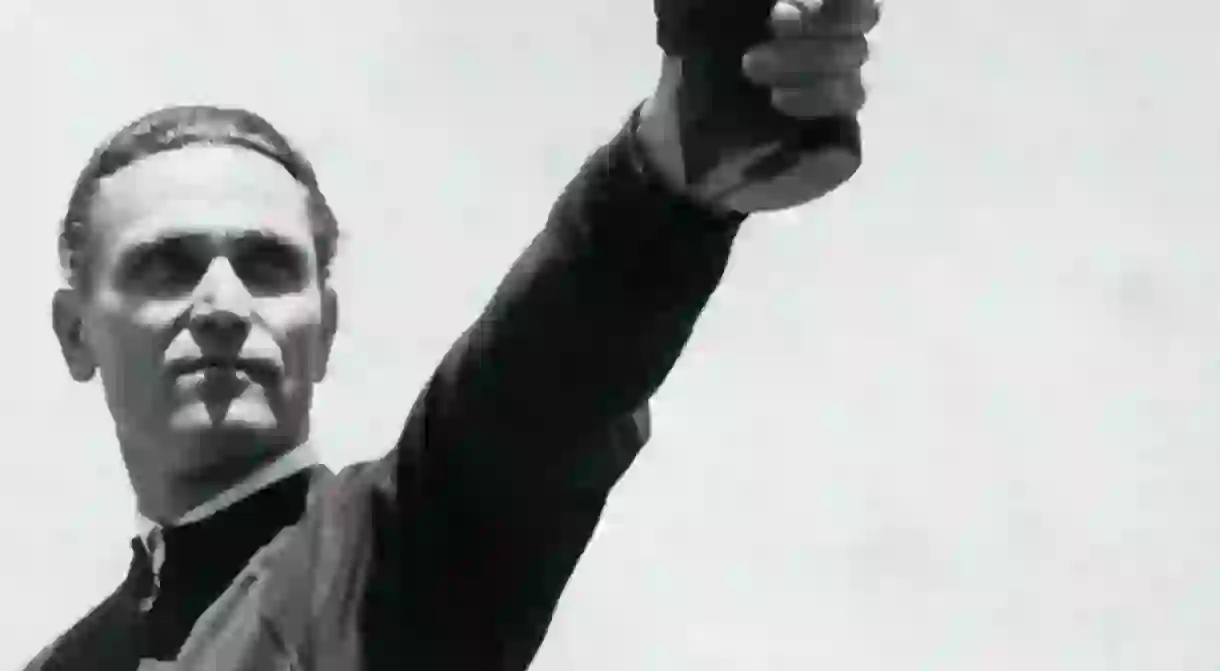Olympic Heroes: Károly Takács And His Wait For Gold

In Hungary, Károly Takács is a national hero. What he achieved, given the obstacles that he overcame, is unparalleled at the Olympic Games.
Takács is one of only five people in the world ever to win an Olympic medal with a physical disability. He harbored ambitions to win gold at the Olympics long before he finally could, but national bureaucracy, personal tragedy and war kept him waiting.
Born in Budapest, Takács’ journey to the 1948 Olympics in London was an eventful one. Having joined the Hungarian Army after his studies he had become a prolific shooter by his early 20s and with the 1936 Olympics in Berlin approaching, would have been a heavy favorite for gold.
Berlin, however, was not to be Takács’ defining moment. Despite his prowess, the policy of his country’s shooting team was only officers were allowed to compete, and as Takács had progressed to the rank of sergeant, he wasn’t available for selection.
Although Takács missed an opportunity to represent his country, he was still only 26, with plenty of time on his side. What’s more, Hungary changed their ruling and lifted the ban on higher ranking officials after the Berlin games. Takács was able to compete in the next Olympics, scheduled for Tokyo in 1940.
The major change in Takács’ life came in 1938. He had continued his training while in the army, but suffered irreversible injuries to his right hand, his shooting hand, when a faulty grenade exploded in a military exercise. Takács’ hand was destroyed and although he spent a month in the hospital, the hand couldn’t be saved.

When the Hungarian national pistol shooting championships were held in 1939, Takács arrived to be met with heartfelt messages of condolence from the other competitors. But Takács was in no mood for sentiment, and to the shock of those around him, announced: “I’m not here to watch. I am here to compete.”
Since the accident, Takács had been practicing in secret with his left hand. No one had known anything about him retraining. Perhaps he did it in secret for fear of failure, had it not worked out the way he planned. Perhaps he didn’t want the sympathy. Whatever the reason, it is far less significant than the fact that he won at those championships. By the time he retired it was a title he had won 35 times.
Having proven he could compete with his left hand, Takács could head to Tokyo and pursue shooting gold, but once again he was denied — both the 1940 and 1944 Olympic Games were cancelled because of World War II.

By the time London hosted the Olympics for the second time, in 1948, Takács had been waiting well over a decade to compete on the biggest stage of them all. The 25 metre rapid fire pistol event had a clear favorite, Carlos Enrique Díaz Sáenz Valiente of Argentina. He was the reigning world champion and confident of victory. During the competition Valiente asked Takács why he was in London, “I am here to learn,” was the Hungarian’s reply.
By the time it came to the medal ceremony, second-placed Valiente was standing, looking up at Takács. With his left hand, Takács had won gold with a world-record score. The Argentine turned to Takács: “You have learned enough.”
Four years later it was a similar story, when Takács picked up his second gold medal in Helsinki. To this day, only Ralf Schumann (Germany) has bettered Takács’ achievement of two golds in his event.
Takács went on to compete in Melbourne at the following Olympics, but could only manage eighth. It didn’t matter. There are plenty of stories of people fighting back from setbacks, but there is something about the secrecy in which Takács went about his rehabilitation that makes him stand out. It is difficult to imagine anybody repeating the feat, and harder still them doing it anytime soon.













